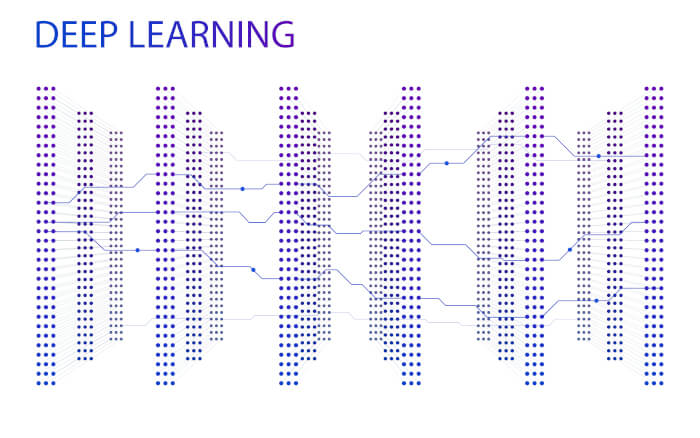PyTensor is a Python library that allows one to define, optimize/rewrite, and evaluate mathematical expressions, especially ones involving multi-dimensional arrays (e.g. numpy.ndarrays). Using PyTensor, it is possible to attain speeds rivaling hand-crafted C implementations for problems involving large amounts of data.
PyTensor combines aspects of a computer algebra system (CAS) with aspects of an optimizing compiler. It can also generate customized code for multiple compiled languages and/or their Python-based interfaces, such as C, Numba, and JAX. This combination of CAS features with optimizing compilation and transpilation is particularly useful for tasks in which complicated mathematical expressions are evaluated repeatedly and evaluation speed is critical. For situations where many different expressions are each evaluated once, PyTensor can minimize the amount of compilation and analysis overhead, but still provide symbolic features such as automatic differentiation.
PyTensor is a fork of Aesara, which is a fork of Theano.
This is free and open source software.
Features include:
- Tight integration with NumPy – Use numpy.ndarray in PyTensor-compiled functions.
- Efficient symbolic differentiation – PyTensor efficiently computes your derivatives for functions with one or many inputs.
- Speed and stability optimizations – Get the right answer for log(1 + x) even when x is near zero.
- Dynamic C/JAX/Numba code generation – Evaluate expressions faster.
- Hackable, pure-Python codebase.
- Extensible graph framework suitable for rapid development of custom operators and symbolic optimizations.
- Implements an extensible graph transpilation framework that currently provides compilation via C, JAX, and Numba.
- Contrary to PyTorch and TensorFlow, PyTensor maintains a static graph which can be modified in-place to allow for advanced optimizations.
Website: pytensor.readthedocs.io
Support: GitHub code repository
Developer: PyMC Development team
License: 3-clause BSD license
PyTensor is written in Python. Learn Python with our recommended free books and free tutorials.
Return to Deep Learning with Python
| Popular series | |
|---|---|
| The largest compilation of the best free and open source software in the universe. Each article is supplied with a legendary ratings chart helping you to make informed decisions. | |
| Hundreds of in-depth reviews offering our unbiased and expert opinion on software. We offer helpful and impartial information. | |
| The Big List of Active Linux Distros is a large compilation of actively developed Linux distributions. | |
| Replace proprietary software with open source alternatives: Google, Microsoft, Apple, Adobe, IBM, Autodesk, Oracle, Atlassian, Corel, Cisco, Intuit, SAS, Progress, Salesforce, and Citrix | |
| Awesome Free Linux Games Tools showcases a series of tools that making gaming on Linux a more pleasurable experience. This is a new series. | |
| Machine Learning explores practical applications of machine learning and deep learning from a Linux perspective. We've written reviews of more than 40 self-hosted apps. All are free and open source. | |
| New to Linux? Read our Linux for Starters series. We start right at the basics and teach you everything you need to know to get started with Linux. | |
| Alternatives to popular CLI tools showcases essential tools that are modern replacements for core Linux utilities. | |
| Essential Linux system tools focuses on small, indispensable utilities, useful for system administrators as well as regular users. | |
| Linux utilities to maximise your productivity. Small, indispensable tools, useful for anyone running a Linux machine. | |
| Surveys popular streaming services from a Linux perspective: Amazon Music Unlimited, Myuzi, Spotify, Deezer, Tidal. | |
| Saving Money with Linux looks at how you can reduce your energy bills running Linux. | |
| Home computers became commonplace in the 1980s. Emulate home computers including the Commodore 64, Amiga, Atari ST, ZX81, Amstrad CPC, and ZX Spectrum. | |
| Now and Then examines how promising open source software fared over the years. It can be a bumpy ride. | |
| Linux at Home looks at a range of home activities where Linux can play its part, making the most of our time at home, keeping active and engaged. | |
| Linux Candy reveals the lighter side of Linux. Have some fun and escape from the daily drudgery. | |
| Getting Started with Docker helps you master Docker, a set of platform as a service products that delivers software in packages called containers. | |
| Best Free Android Apps. We showcase free Android apps that are definitely worth downloading. There's a strict eligibility criteria for inclusion in this series. | |
| These best free books accelerate your learning of every programming language. Learn a new language today! | |
| These free tutorials offer the perfect tonic to our free programming books series. | |
| Linux Around The World showcases usergroups that are relevant to Linux enthusiasts. Great ways to meet up with fellow enthusiasts. | |
| Stars and Stripes is an occasional series looking at the impact of Linux in the USA. | |
